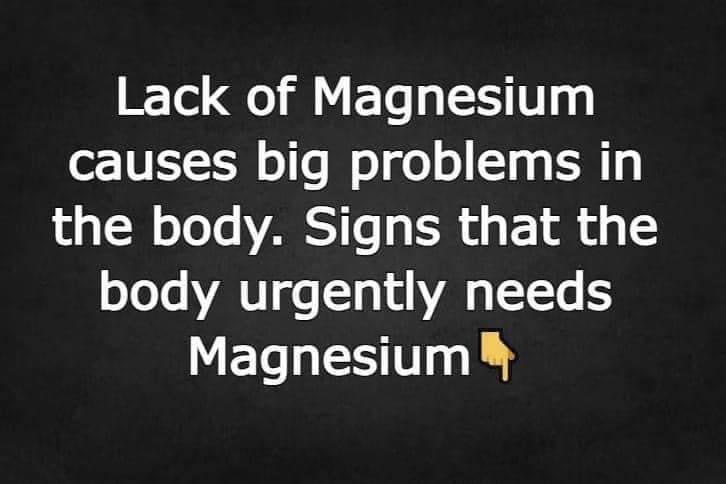Magnesium is a vital mineral that plays a significant role in several important functions of the body, including muscle function, nerve health, and maintaining strong bones. It is essential for overall well-being, especially as we age. However, many people, particularly those in the 45-65 age group, may experience a deficiency in this crucial nutrient.

If you find yourself experiencing any of the following symptoms, it may be an indication that your body is lacking magnesium:
- Muscle cramps and spasms
- Fatigue and lack of energy
- Difficulty sleeping or insomnia
- Irregular heartbeat or heart palpitations
But don’t worry! There are simple steps you can take to boost your intake of magnesium and help alleviate these symptoms. Proper magnesium levels contribute to the regulation of blood sugar and cholesterol, which is beneficial for supporting heart health and managing conditions like diabetes.
One effective way to increase your magnesium intake is by incorporating magnesium-rich foods into your diet. Some examples of foods high in magnesium include:
- Leafy green vegetables like spinach and kale
- Nuts and seeds like almonds, pumpkin seeds, and sunflower seeds
- Whole grains like quinoa, oatmeal, and brown rice
- Beans and legumes like black beans, chickpeas, and lentils
In addition to dietary changes, magnesium supplements can also be an excellent option for boosting your levels. However, it is always important to consult with your healthcare provider before starting any new supplements, especially if you have any pre-existing health conditions or are taking medications.
Remember, maintaining adequate levels of magnesium is crucial for your overall health and well-being. By being aware of the signs of deficiency and taking proactive steps to increase your magnesium intake, you can support your body’s optimal functioning and enjoy a healthier, more active life.




